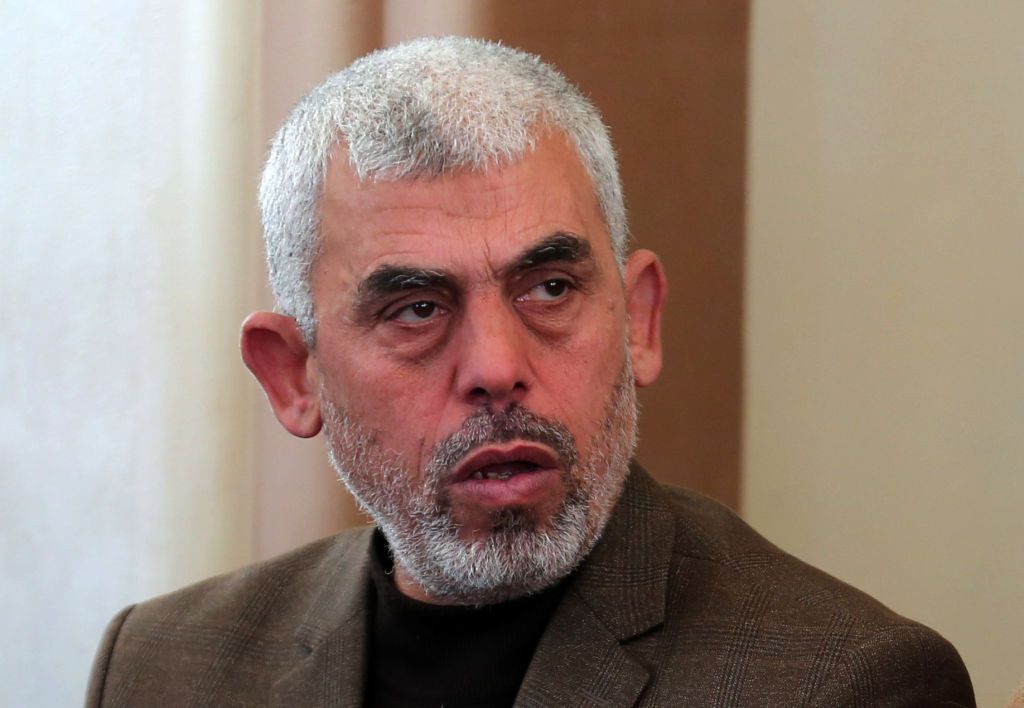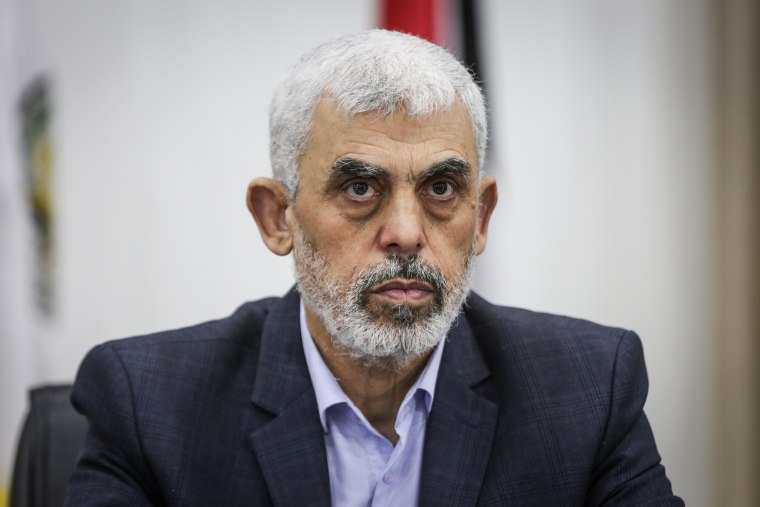Hamas Leadership and Ideology

Hamas, the Palestinian Islamic Resistance Movement, has been a prominent force in Palestinian politics and the Israeli-Palestinian conflict for decades. Understanding its leadership and ideology is crucial for comprehending the complexities of the region.
Historical Evolution of Hamas Leadership
Hamas’s leadership has evolved since its founding in 1987, with key figures shaping its trajectory.
- Sheikh Ahmed Yassin: Founder and spiritual leader of Hamas, Yassin was a prominent figure in the early years, advocating for armed resistance against Israel. His assassination in 2004 marked a turning point for the organization.
- Khaled Meshaal: Yassin’s successor, Meshaal, is a political strategist who has sought to expand Hamas’s international presence and build alliances. He has played a key role in negotiating ceasefires and securing humanitarian aid for Gaza.
- Ismail Haniyeh: Elected Prime Minister of the Hamas-controlled Gaza Strip in 2006, Haniyeh has been responsible for managing the territory’s daily affairs. He has faced significant challenges, including economic hardship and political isolation.
Core Tenets of Hamas Ideology
Hamas’s ideology is rooted in Islamic fundamentalism and a commitment to Palestinian liberation.
- Resistance to Israel: Hamas considers Israel an illegitimate entity and advocates for its destruction through armed struggle.
- Establishment of an Islamic State: Hamas aims to establish an Islamic state in all of historical Palestine, including territories currently controlled by Israel.
- Social Justice: Hamas emphasizes social justice and seeks to improve the lives of Palestinians, particularly in Gaza.
Factions within Hamas
While Hamas presents a unified front, internal divisions exist, reflecting different perspectives on strategy and tactics.
- Hardliners: Advocate for continued armed resistance and a rejection of any negotiations with Israel.
- Moderates: Open to dialogue and compromise, potentially accepting a two-state solution with Israel.
Factors Shaping Hamas Leadership and Conflict Approach
Several factors have influenced Hamas’s leadership and its approach to conflict.
- Israeli Occupation: The ongoing Israeli occupation of Palestinian territories has fueled Hamas’s resistance and its popular support among Palestinians.
- International Isolation: Hamas has faced international sanctions and condemnation for its use of violence. This has limited its access to resources and political leverage.
- Internal Divisions: Internal disagreements within Hamas, particularly regarding the use of violence and the potential for negotiation, have created challenges for the organization.
Israel’s Perspective on Hamas: Israel Hamas Leader

Israel views Hamas as a significant threat to its security and existence. This perception stems from Hamas’s stated goal of destroying Israel and its refusal to recognize Israel’s right to exist. Hamas’s violent activities, including rocket attacks and cross-border incursions, have resulted in the loss of Israeli lives and caused significant damage to Israeli infrastructure.
Hamas as a Security Threat
Hamas’s commitment to armed struggle against Israel has led to a long-standing conflict characterized by violence and instability. Israel sees Hamas as a primary source of security threats, citing its involvement in numerous terrorist attacks, including suicide bombings, rocket attacks, and cross-border infiltrations.
Israel’s Strategies for Dealing with Hamas
Israel has adopted a multifaceted approach to address the Hamas challenge, encompassing military operations, political negotiations, and economic measures.
Military Operations
Israel has conducted numerous military operations against Hamas in the Gaza Strip, aiming to dismantle its infrastructure and deter further attacks. These operations have often been controversial, drawing international criticism for civilian casualties.
Political Negotiations
Israel has engaged in intermittent negotiations with Hamas, seeking a peaceful resolution to the conflict. However, these efforts have been hampered by Hamas’s refusal to recognize Israel’s right to exist and its continued pursuit of armed struggle.
Economic Measures
Israel has implemented economic measures, including blockades and restrictions on the flow of goods and people, to pressure Hamas and limit its ability to operate. These measures have had a significant impact on the civilian population in Gaza, raising concerns about humanitarian consequences.
Perspectives of Israeli Policymakers and Analysts
Israeli policymakers and analysts generally view Hamas as a radical and uncompromising organization that poses a persistent threat to Israel’s security. They argue that Hamas’s ideology and actions make it impossible to negotiate a lasting peace agreement.
Historical Context of the Israeli-Hamas Conflict
The Israeli-Hamas conflict has its roots in the ongoing Israeli-Palestinian conflict. Hamas emerged as a militant group in the 1980s, gaining prominence during the First Intifada. Its rise was fueled by Palestinian frustration with the Israeli occupation and the failure of peace negotiations. The conflict has had a profound impact on both Israeli and Palestinian societies, shaping their political and social landscapes.
International Reactions and Responses

The Israeli-Hamas conflict has sparked widespread international reactions and responses, with various actors adopting different stances. Understanding these reactions is crucial for comprehending the complexities of the conflict and its potential for resolution.
Stances of Different Countries and Organizations
The international community’s response to the Israeli-Hamas conflict is multifaceted, with diverse perspectives and approaches.
- The United States: The United States has historically been a strong supporter of Israel, providing significant military and financial aid. The US government has condemned Hamas’s attacks and has called for a ceasefire. However, the US has also expressed concerns about the escalating violence and the humanitarian situation in Gaza. The US has been involved in diplomatic efforts to broker a ceasefire, but its approach has been criticized by some for being too biased towards Israel.
- The European Union: The European Union has been critical of both Israel and Hamas, calling for a de-escalation of the conflict and urging both sides to respect international law. The EU has imposed sanctions on Hamas and has called for a two-state solution to the Israeli-Palestinian conflict. However, the EU has also faced criticism for its perceived lack of action in holding Israel accountable for its actions.
- The United Nations: The United Nations has condemned Hamas’s attacks and has called for an immediate ceasefire. The UN has also expressed concern about the humanitarian situation in Gaza and has called for an end to the blockade of Gaza. The UN Security Council has adopted several resolutions condemning the violence and calling for a ceasefire, but these resolutions have often been blocked by the United States, which has veto power.
- Arab League: The Arab League has condemned Israel’s actions and has called for an immediate ceasefire. The Arab League has also expressed support for the Palestinian people and has called for an end to the Israeli occupation of Palestinian territories. The Arab League has been vocal in its criticism of Israel’s actions and has called for international pressure to be placed on Israel to end the conflict.
- Russia: Russia has called for a ceasefire and has expressed concern about the humanitarian situation in Gaza. Russia has also called for a political solution to the conflict, but its position has been criticized for being too close to Israel. Russia has been involved in diplomatic efforts to broker a ceasefire, but its role has been limited by its own political interests.
Key Issues and Concerns Shaping International Responses
Several key issues and concerns have shaped international responses to the Israeli-Hamas conflict.
- Humanitarian Crisis: The conflict has resulted in a severe humanitarian crisis in Gaza, with widespread destruction, civilian casualties, and a lack of essential supplies. The international community has expressed deep concern about the plight of the civilian population and has called for urgent humanitarian aid and access to Gaza.
- International Law: The conflict has raised concerns about the application of international law, particularly with regard to the use of force, the protection of civilians, and the right to self-determination. The international community has called on both Israel and Hamas to respect international law and to refrain from actions that violate it.
- Two-State Solution: The conflict has reignited the debate over the two-state solution, which is widely seen as the only viable path to a lasting peace. The international community has reiterated its support for a two-state solution, with Israel and Palestine living side by side in peace and security.
- Role of International Diplomacy: The conflict has highlighted the importance of international diplomacy in addressing the conflict and finding a lasting solution. The international community has called for renewed diplomatic efforts to bring the parties together and to facilitate negotiations. The UN, the EU, and other international actors have been involved in diplomatic efforts, but these efforts have been hampered by the lack of trust between the parties and the political complexities of the conflict.
Role of International Law and Diplomacy, Israel hamas leader
International law and diplomacy play crucial roles in addressing the Israeli-Hamas conflict.
- International Law: International law provides a framework for regulating the conduct of states and other actors in international relations. It sets standards for the use of force, the protection of civilians, and the resolution of disputes. International law is essential for ensuring that the conflict is conducted in accordance with agreed-upon norms and principles.
- Diplomacy: Diplomacy involves the use of negotiation and dialogue to resolve disputes and build relationships between states and other actors. It is an essential tool for preventing conflict and for finding peaceful solutions to existing conflicts. Diplomacy is crucial for bridging divides, fostering understanding, and building trust between the parties to the conflict.
Israel hamas leader – The relationship between Israel and Hamas is a complex one, fraught with historical grievances and ongoing conflict. The current situation is a stark reminder of the deeply rooted tensions between the two entities, and understanding the dynamics at play is crucial to grasping the ongoing crisis.
To learn more about the intricate relationship between Israel and Hamas, you can explore this article that delves into the complexities of the situation.
The ongoing conflict between Israel and Hamas is a complex issue with global implications. While the situation in the Middle East is a pressing concern, it’s important to remember that natural disasters can also have a devastating impact. For instance, tropical storm Debby wreaked havoc on coastal regions, highlighting the need for international cooperation in disaster relief.
Similarly, the Israel-Hamas conflict requires a diplomatic solution to ensure peace and stability in the region.
